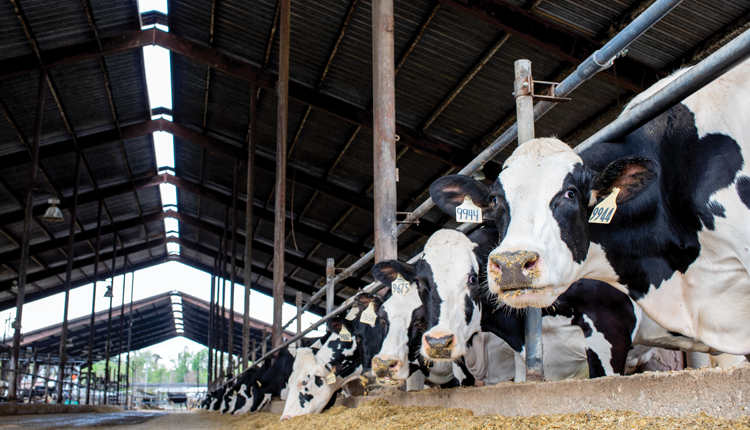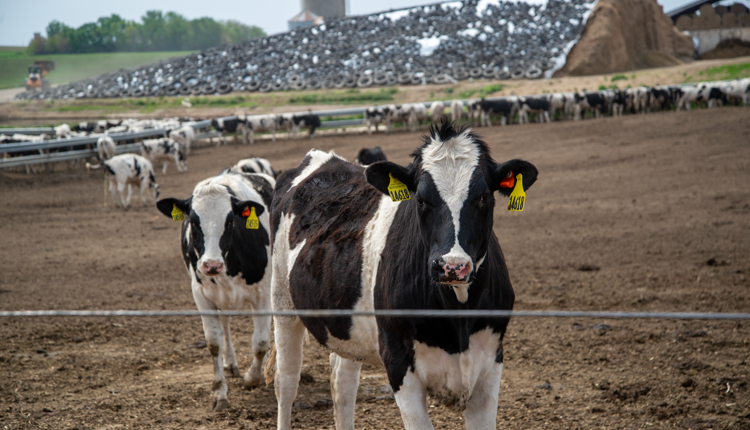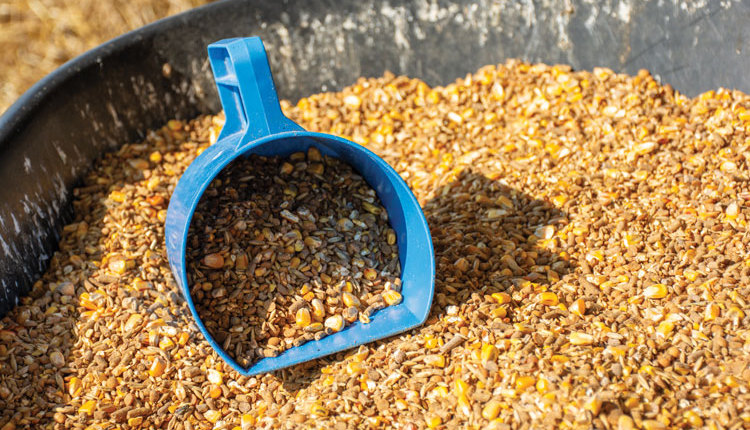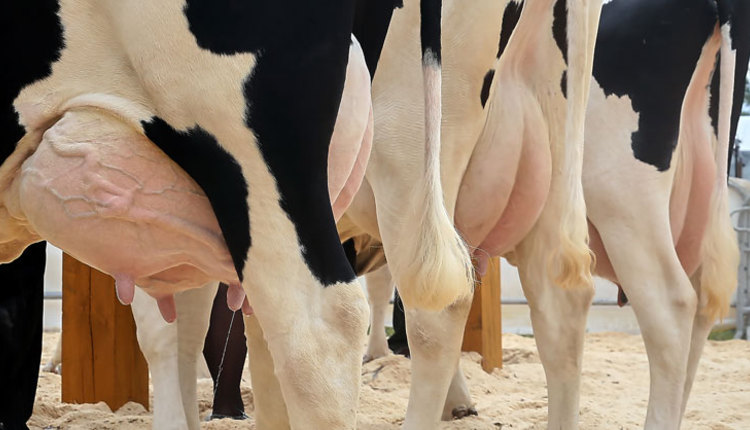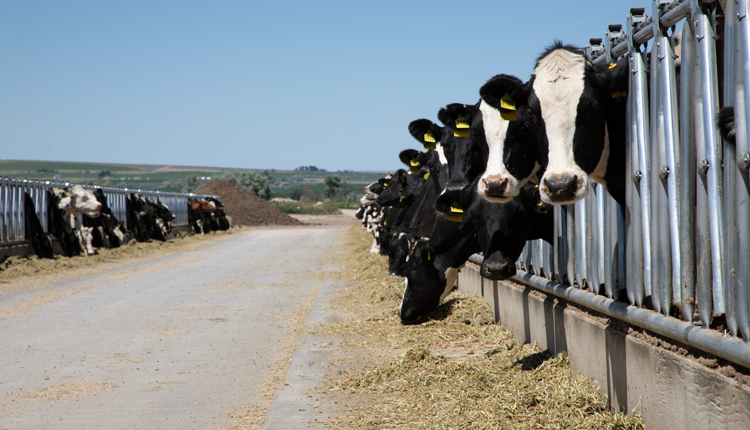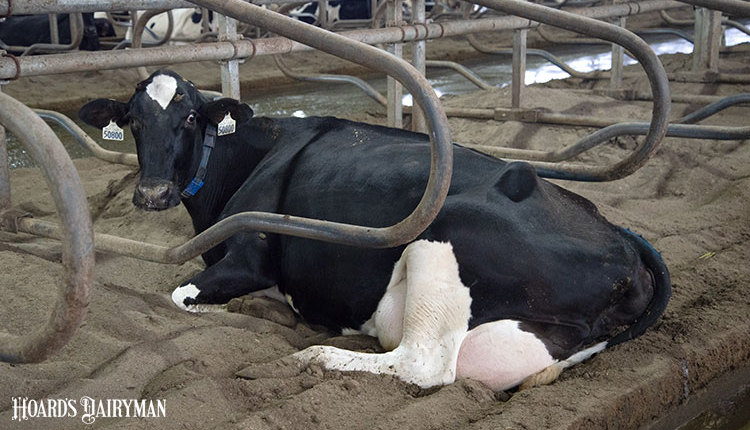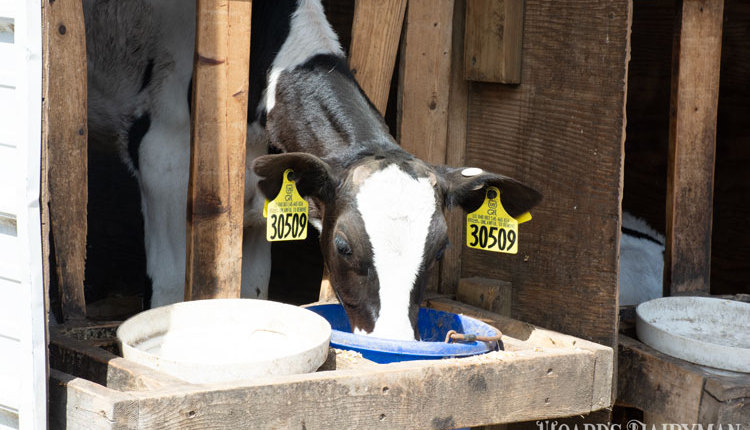It may not be the leading cause of improved milk production, but behavioral research in Europe has shown that cows that listen to music produce more milk.
While it remains a relatively unstudied field, some research supports playing slow tempo music while cows are in the barn. Researchers played a musical selection with tempos that did not exceed 100 beats per minute to cows for 12 hours a day and saw milk production boosted by 1.6 pounds compared to cows that listened to no music.
Much of the gain in milk production was associated with stress abatement experienced by cows listening to the music. Likewise, studies conducted on dogs in an animal rescue shelter showed reduced activity when classical music was played. The dogs spent more time resting and less time barking.
However, producers should beware. Loud, faster tempo music in the milk parlor may be detrimental to milk letdown. Cows that listened to music faster than 120 beats per minute exhibited smaller milk yields than cows that listened to no music.
When this was studied in the animal shelter, it was found that dogs responded to higher tempo music like heavy metal with high levels of agitation, barking and increased movement. A similar study was conducted exposing rats to rock music. Researchers observed the rats exhibited more signs of stress including a reduced ability to heal wounds.
The findings have also been echoed in human studies that show humans select slower tempo music to reduce stress. Pain alleviation has also been linked to music listening by studies of patients with various medical ailments including cancer. It is believed that music mediates pain by distracting patients and offering a perception that they can control the pain.
Stress induces the release of adrenaline and inhibits the release of oxytocin. Therefore, whether music is played or not, producers should focus on keeping cows calm while bringing them into the barn and milking them.
This article appears on page 467 of the July 2014 issue of Hoard's Dairyman.
While it remains a relatively unstudied field, some research supports playing slow tempo music while cows are in the barn. Researchers played a musical selection with tempos that did not exceed 100 beats per minute to cows for 12 hours a day and saw milk production boosted by 1.6 pounds compared to cows that listened to no music.
Much of the gain in milk production was associated with stress abatement experienced by cows listening to the music. Likewise, studies conducted on dogs in an animal rescue shelter showed reduced activity when classical music was played. The dogs spent more time resting and less time barking.
However, producers should beware. Loud, faster tempo music in the milk parlor may be detrimental to milk letdown. Cows that listened to music faster than 120 beats per minute exhibited smaller milk yields than cows that listened to no music.
When this was studied in the animal shelter, it was found that dogs responded to higher tempo music like heavy metal with high levels of agitation, barking and increased movement. A similar study was conducted exposing rats to rock music. Researchers observed the rats exhibited more signs of stress including a reduced ability to heal wounds.
The findings have also been echoed in human studies that show humans select slower tempo music to reduce stress. Pain alleviation has also been linked to music listening by studies of patients with various medical ailments including cancer. It is believed that music mediates pain by distracting patients and offering a perception that they can control the pain.
Stress induces the release of adrenaline and inhibits the release of oxytocin. Therefore, whether music is played or not, producers should focus on keeping cows calm while bringing them into the barn and milking them.
